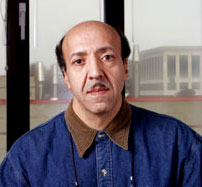


Address:
Lady Davis Institute
for Medical Research
Room 523
3755, Chemin Cote-Ste-Catherine
Montreal, Quebec, Canada H3T 1E2
Tel. 514-340-8260/8222 Ext. 3438/3432
Fax: 514-340-7576
E. mail:moulay.alaoui-jamali@mcgill.ca
In addition to basic and applied research, my laboratory has established a national and international expertise in screening for novel therapeutics in a variety of relevant non-invasive and invasive in vivo cancer models established in this laboratory. Over 15 pharmaceutical companies from Canada and abroad have used our expertise to develop novel cancer therapeutics.
Ongoing research
· Characterization of the molecular switches by which
growth factor receptor signaling promotes the disorganization of the extracellular
matrix, activation of local host stroma, and neovascularization.
· Characterization of in vitro and in vivo function(s) of RBT1, a novel
cancer associated gene discovered in this laboratory.
· Understanding the mechanisms by which HCV and HBV oncoproteins and
the associated inflammatory processes promote carcinogenesis.
· Development of novel cancer targets and molecules we identified by
genomic and biochemical approaches, and design of inhibitors for therapeutic
purposes